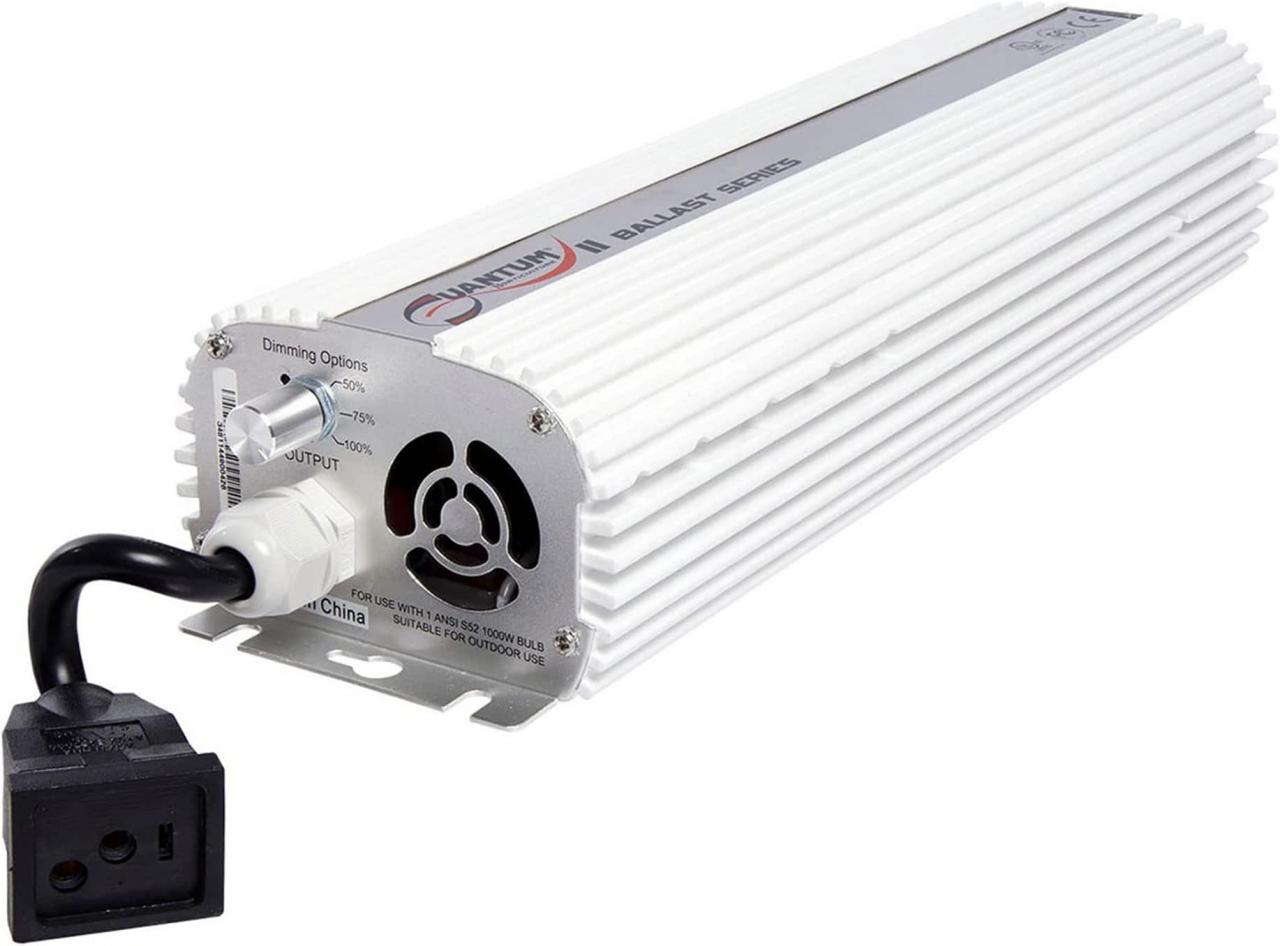When it comes to setting up an indoor garden, choosing the right lighting equipment is crucial for the health and growth of your plants. The Quantum 1000W Dimmable Digital Ballast is a popular choice among growers, but is it the best option for your needs? Let’s take a closer look at the pros and cons of this ballast to help you make an informed decision.

Pros of the Quantum 1000W Dimmable Digital Ballast
Dimmable functionality: The ballast allows you to run your lamps at 100%, 75%, or 50% power, giving you more control over the light intensity in your grow space.
Compatibility: It can strike both metal halide (MH) and high pressure sodium (HPS) bulbs, making it a versatile choice for different stages of plant growth.
Voltage flexibility: The ballast accepts both 120V and 240V without any wiring needed, as both cords are included. It can also be configured for 208V with the help of an electrician.
Efficiency and stability: With a power factor of 99.9%, the ballast provides a highly stable output frequency. It runs 15% cooler than other digital ballasts on the market and can efficiently operate on generators without flickering.
Durability: The ballast features a resin-sealed circuit board, making it suitable for high humidity installations. It can withstand the extreme atmospheric conditions of virtually any growing environment.
Cons of the Quantum 1000W Dimmable Digital Ballast
Price: The ballast is on the higher end of the price spectrum, with some retailers selling it for over $300.
Compatibility limitations: The Quantum QT1000 ballast is designed to operate single-ended lamps only and cannot run double-ended (DE) lamps. It is not compatible with certain lamp models like the US5001671 and DX1000HPS.
Noise: While the ballast is designed to be silent, some users have reported a slight humming noise during operation.
In conclusion, the Quantum 1000W Dimmable Digital Ballast offers a range of features that make it an attractive choice for indoor gardeners. Its dimmable functionality, compatibility with both MH and HPS bulbs, and efficiency make it a reliable option. However, the higher price point and compatibility limitations may be drawbacks for some growers. Ultimately, it’s important to weigh your specific needs and budget to determine if this ballast is the right fit for your indoor garden.